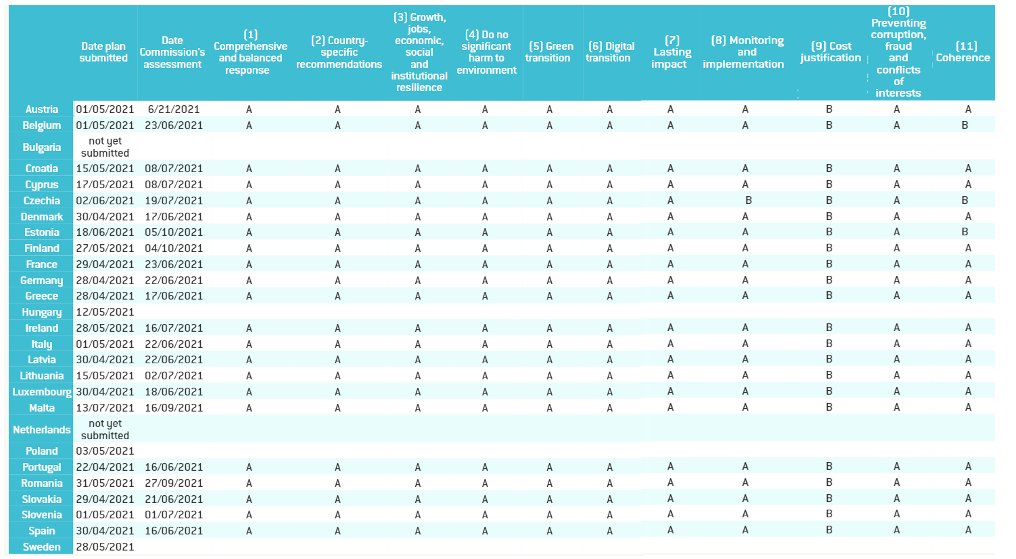
We are failing in our goal to vaccinate the world. As long as we do not succeed, new variants will continue to appear: see omicron.
As a solution, some propose a patent waiver. But we do not have a production problem, but a distribution one
How can we vaccinate the world? 1/20
As a solution, some propose a patent waiver. But we do not have a production problem, but a distribution one
How can we vaccinate the world? 1/20
First, this is not a production problem. We've manufactured nearly 9 billion doses so far. We could get to 12.5 bn by the end of 2021. Moreover, manufacturing capacity continues to increase rapidly since January of this year. 2/20 

Vaccinating 80% of the world's population over 12 years old, only takes 11.3 billion doses. At the current production pace, there will be a surplus of vaccines by mid-2022. The Economist explained this here 👇3/20
economist.com/international/…
economist.com/international/…
Additionally, most developed countries have negotiated more doses than needed to vaccinate 100% of their population. In 2021, 24.1 billion doses will go to waste. So, there are enough vaccines, but they are in the wrong place 4/20
bbc.com/news/world-us-…
bbc.com/news/world-us-…
The solution we need is COVAX, the Covid-19 Vaccines Global Access initiative, which negotiates lower prices with vaccines producers and receives donated doses from developed countries.
Then, it distributes them among 92 low- and middle-income countries through UNICEF. 5/20
Then, it distributes them among 92 low- and middle-income countries through UNICEF. 5/20
COVAX started distributing vaccines in February 2021 aiming to deliver 2 bn doses in 2021. To date, only 1.4 bn doses have been allocated, and only 44% of the latter were delivered. 6/20 

What went wrong? Developed countries do not fulfill their commitments on time: the US has donated only 40% of its pledged doses; the EU 70%, the UK 10%.
Further, the donated doses arrive only a few weeks before their expiring date and thus there is no time to deliver them. 7/20
Further, the donated doses arrive only a few weeks before their expiring date and thus there is no time to deliver them. 7/20
Some believe the silver bullet is to waive patents on Covid-19 vaccines.
It is an easy, but erroneous, solution to a production problem that is inexistent. Above all, it is not a fast response.
Here are the reasons why it's a bad idea: 8/20
It is an easy, but erroneous, solution to a production problem that is inexistent. Above all, it is not a fast response.
Here are the reasons why it's a bad idea: 8/20
1. The patent waiver will damage the legal certainty of pharmaceutical companies, reducing their incentives for investing in research and innovation (for example: more vaccines, a cure against cancer, etc.). 9/20
2. Producing vaccines is hard. Not only is having the recipe necessary, but also the right technology and highly skilled personnel. Developing these capabilities takes a long time, so production in developing countries would hardly increase in the short term. 10/20
3. This is an artificial debate. Intellectual Property rights have not yet been implemented in the Least Developed Countries of the WTO due to a transitional agreement. Pharmaceutical companies can already produce generic vaccines in these countries. 11/20
ceps.eu/is-the-propose…
ceps.eu/is-the-propose…

As of today, there are three legal alternatives to patent waiving included in the Agreement on Trade-Related Aspects of Intellectual Property Rights (TRIPS) which are already in use. 12/20
wto.org/english/docs_e…
wto.org/english/docs_e…
1º Voluntary licensing. Pharmaceutical companies owning the patents can sign agreements with other producers to make a generic version of the vaccine in developing countries. AstraZeneca already did it 13/20
astrazeneca.com/media-centre/a…
astrazeneca.com/media-centre/a…

2nd Compulsory licensing. The government can authorize another producer to make a generic version of the vaccine without the consent of the patent owner in cases like this health emergency. The EU Commission seeks an agreement on these terms 14/20 wto.org/english/docs_e…
3rd Compulsory export licensing. The government may authorize another producer, without the consent of the owner, to make a generic version of the vaccine exclusively for export to specific countries, such as those least developed. 15/20 international.gc.ca/world-monde/in…
The whole debate about Intellectual Property rights is a distraction: there is no production problem, it is a distribution problem. nytimes.com/2021/08/02/wor…
How to solve it? 16/20
How to solve it? 16/20
1. Provide COVAX, on time, with the funds and doses agreed.
In @RenewEurope we have stood up for this. A few weeks ago, we got the EU to allocate €1.425 billion for vaccines and distribution through COVAX, but it is not enough.
I told you here 👇17/20
In @RenewEurope we have stood up for this. A few weeks ago, we got the EU to allocate €1.425 billion for vaccines and distribution through COVAX, but it is not enough.
I told you here 👇17/20
https://twitter.com/lugaricano/status/1460608204652621836?s=20
2. States must cooperate and refuse to hoard a surplus of vaccines. Even supplying booster doses to the at-risk population, developed countries have enough doses to vaccinate 70% of the world's population by mid-2022. 18/20
3. Finally, we must combat disinformation and anti-vaccine skepticism. 54% of South Africa's population does not want to get vaccinated. In Romania, the 40%.
We must help citizens understand that their health, and that of humanity, depend on their decision. 19/20
We must help citizens understand that their health, and that of humanity, depend on their decision. 19/20
We face a complex issue, and it requires a complex answer. It is not enough to donate leftover doses from developing countries when they are close to expiring, nor it is to waive patents. The world needs to work harder to improve distribution and vaccine hesitancy. 20/20
• • •
Missing some Tweet in this thread? You can try to
force a refresh






